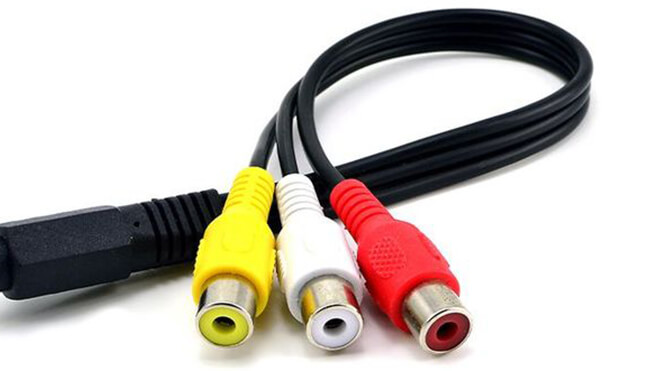
The Virtual Gold Rush
Everything You Need to Know About Bitcoins
In the Sacramento Valley in 1848 gold nuggets were found, sparking one of America's most historically significant events - the Gold Rush. According to History.com, as news spread thousands of people traveled to San Francisco in search of gold and by 1852 $2 billion worth of gold is believed to have been extracted from the area.
Today, many people are investing and dealing in unregulated digital currencies like Bitcoin, just as people invested in gold during the time of the "wild west." In an August study by LendEDU, "more than a third of millennials said they planned to invest in Bitcoin," despite concerns about "the currency's security, anonymity, usability, and increasingly, legality," Bank Innovation's Grace Noto reports.
Although they've been around since 2009, digital currencies like Bitcoin are gaining more and more mainstream attention.
If you're currently asking yourself "what's a Bitcoin?," or "why should I care about digital currencies?," then we suggest reading this Lifewire article by Paul Gil, which provides a good foundation about Bitcoins, which are currently the most popular form of digital currency (there are more than 700 different types).
Our guest expert Nidhi Shandilya, Senior Digital Payments Manager here at BECU recently weighed in on the digital currency landscape and what it means to us as a credit union, and to you as our members.
According to Nidhi, Bitcoin has sparked excitement not just because of the digital currency, but because there are actually three distinct innovations related to the underlying technology. These are:
- Digital currency - a type of currency only available in digital form. This technology allows for instant and borderless transactions and transfers
- Distributed ledgers - the technology used to manage the digital currency
- Blockchain - an algorithm used to record transactions across many computers.
Together, these three powerful innovations have the potential to remove existing barriers and inefficiencies in our current payment systems (even across broad industries like healthcare). What's even more interesting is that the applications of these technologies can extend beyond the concept of digital currency into other applications - applications which have yet to be determined. At BECU we're closely watching this technological evolution.
Are digital currencies like Bitcoin just a passing fad? Nidhi says they're here to stay in some form, but whether that is the current form or a new one has yet to be determined. Here's what you need to know and what BECU is watching out for.
Let's Start with the Basics: What is a Digital Currency?
A digital currency is not the same as an online payment, or the online banking that you're using here at BECU. The online monetary systems that you use to pay bills, transfer money, or collect your pay use digital payment systems which are done in USD and other Fiat currencies.
Digital currencies, which are also called electronic currency, or 'cryptocurrency' are a form of digital public money that is unregulated by banks or governments. Digital currencies are collected by individuals and can be exchanged for common currency (like USD, for example) to pay for goods or services.
While Bitcoin is the most popular form of digital currency, there are other forms, referred to as altcoins. Some altcoins are improved versions of Bitcoin. According to Investopedia, other than Bitcoin, the top digital currencies are:
- Litecoin (LTC)
- Ethereum (ETH)
- Zcash (ZEC)
- Dash (formerly known as Darkcoin)
- Ripple (XRP)
- Monero (XMR)
Currently, these currencies are all "mined," by individuals and consortiums, are all uninsured and unregulated and therefore, have varying levels of risk to anyone dealing in them.
What, Exactly Are Bitcoins and How Do They Work?
Bitcoins and other forms of digital currency are "electricity converted into long strings of code that have monetary value," Gil says. Bitcoins are not tangible - you can't hold them - and because they're virtual there's no need for banks to move or store them.
According to Gil, "once you own Bitcoins, they behave like physical gold coins: they possess value and trade just as if they were nuggets of gold in your pocket. You can use your Bitcoins to purchase goods and services online, or you can tuck them away and hope that their value increases over the years."
Essentially, you keep Bitcoins in your "wallet," which is a personal database that you store electronically (on a USB drive, on your computer drive, on your smartphone or tablet, or in the cloud). But, whatever you do, don't lose them! Once lost, your Bitcoins are gone forever. They're not insured against theft or fraud because they're an unregulated currency. It's up to you, the owner, to create your own cyber security to ensure your Bitcoins are not hacked.
Where Do Bitcoins Come From?
Just like gold nuggets, Bitcoins are "mined" by individuals, except these miners use their computers to create the digital currency. However, Bitcoins are extremely difficult to make and to do so would mean setting your computer up to solve labor-intensive mathematical equations which could take days to complete.
The fact that they're so computationally-intensive to create is part of the value creation of a digital currency. In other words, the effort to create the currency creates value. The combination of the Blockchain algorithm and the distributed ledger used to manage the currency is what makes Bitcoins very forgery resistant. It isn't financially worth it for counterfeiters to manipulate the system.
You might be wondering where the value comes from, considering Bitcoins can be created at home. Just like gold, there is a finite number of Bitcoins. "Bitcoins will stop being created when the total number reaches 21 billion coins, which will be sometime around the year 2040. As of 2017, more than half of those Bitcoins had been created," Gil says.
Concerns Surrounding Digital Currency
At BECU, we're monitoring the digital currency landscape, but we're not ready to jump in yet, Nidhi says, primarily because of three major concerns:
- Regulatory concerns: As mentioned earlier, most digital currencies are currently unregulated, which means there is no way to protect consumers. With no protections around holding or exchanging this currency many cryptocurrencies are a global favorite of criminals for trading in illegal goods and services.
- The fluctuations in the value of digital currency: Digital currencies have gained or lost as much as 30% or more of their value in one day. This volatility in its inherent value makes it less than ideal for use as a daily currency.
For example: imagine one cryptocurrency is worth $20.00. You decide to buy a game with that one cryptocurrency today. But tomorrow, the value of that cryptocurrency increased by 30%. Your one cryptocurrency is now worth $26. Well that game, which still costs only $20 USD, now cost you $26 only a day later.
Conversely, if the cryptocurrency lost 30% of its value, then you might have to pay 1.3 Bitcoins to get that same game. There are very few Fiat currencies in the world that ever come close to having this type of volatility and most of those countries would typically be experiencing hyper-inflation and significant political instability with the same level of volatility. - Multiple data breaches of digital currency and its technology. As you may have already heard, many of the global giants who do process cryptocurrency trades have been hacked and Bitcoins have been stolen or lost because criminals were able to steal the keys that tie a cryptocurrency to a person. Once those keys are stolen and the cryptocurrency is traded, it is irrevocable - gone forever. Unlike a regulated environment where a victim has protections and rights; they do not in this environment.
As a credit union, we have a fiduciary responsibility to you, our members and our charter, and as such, digital currency has too many inherent risks to our members for us to take any action on this innovation yet. Some may say we're playing it safe, but we're not yet ready to test the waters at the expense of the security and protection of our members. We're not leading the pack with digital currency, and we're okay with that. We would never offer a product or service merely to garner attention for innovation or to generate income.
With that being said, we're committed to following digital currency trends to stay up to date on the pros and cons surrounding this new frontier. Needless to say, we're following the story of Bitcoin and other altcoins closely, to see how this "wild west" scenario pans out.
Recommended further reading:
Bajpai, Prableen. The 6 Most Important Cryptocurrencies Other Than Bitcoin. Investopedia. April 21, 2017.
Gil, Paul. What Are Bitcoins? How Do Bitcoins Work? Lifewire. Accessed October 5, 2017.
History.com Staff. The Gold Rush of 1849. History.com. Published by A&E Networks. Accessed October 10, 2017.
IBM.com Staff. Understand the Fundamentals of IBM Blockchain. IBM. Accessed October 10, 2017.
Noto, Grace. Millennials Prefer Staid Investing to Cryptocurrencies, Robinhood Co-founder Said. Bank Innovation. October 11, 2017.
theSkimm Staff. theSkimm's Guide to Bitcoin. theSkimm. July 26, 2017.
The above article is intended to provide generalized financial information designed to educate a broad segment of the public; it does not give personalized financial, tax, investment, legal, or other business and professional advice. Before taking any action, you should always seek the assistance of a professional who knows your particular situation when making financial, legal, tax, investment, or any other business and professional decisions that affect you and/or your business.


